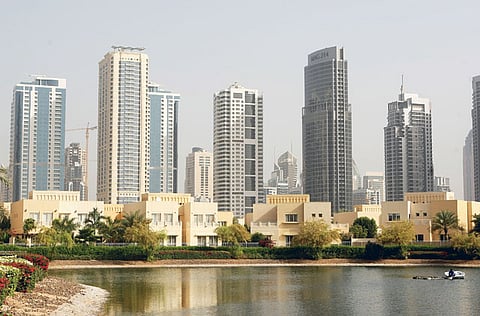Dubai mulls nuclear and coal-fired power plants
Coal and nuclear technology are two options being weighed by the government

Dubai: Coal and nuclear technology are two options being weighed by the Dubai Government as it strives to diversify energy resources to meet future demand, a top official said.
The private sector will be allowed to invest in power projects in future as part of the Energy Strategy 2030, he said.
"We are looking for public-private partnerships and already we are experiencing this in the Hessian project. However, the private sector's participation will not go above 40 per cent," Saeed Mohammad Al Tayer, vice-chairman of the Supreme Council of Energy, and managing director and chief executive of the Dubai Electricity and Water Authority (Dewa), told Gulf News.
The Dubai Government's newly created Supreme Council of Energy has hired global advisory group McKinsey & Company to help develop an Energy Strategy 2030 that will help the emirate explore alternative energy resources to power its utilities sector and meet future demand.
Strong economic growth has driven up power demand across the GCC where governments have been pondering the use of nuclear and alternative energies to maintain growth. The UAE earlier awarded a contract to a Korean consortium to build four nuclear power plants.
The council is studying the development of short, medium and long-term strategic plans for the energy sector in Dubai. "It is a study at this stage which will be completed in August. The power demand in Dubai is increasing," Al Tayer said.
"However, the coal-fired and nuclear energy options are followed by the most advanced industrial countries, the US, China, Korea, which we hope to adopt as well. This could be the best option to diversify energy sources in the Emirates including alternative and nuclear energy and create ongoing sources of sustainable energy to meet the requirement of future development."
Prominent role
The report is expected to measure the projected power and utility demand for the emirate and suggest a roadmap for Dubai with the private sector expected to play a prominent role in power generation.
The energy demand in Dubai is very high, Al Tayer said, but could not estimate how high it would be by 2030. "Power demand in Dubai has reached the peak in June. It is 5.6 per cent higher than the previous level and expected to grow further," he said.
Exponential growth in energy demand and the need to secure fuel sources had made the government look at diversification of energy sources to meet future demand, he said.
"We discussed the development of a strategy related to the preservation of the environment and reducing carbon emissions, sustainable energy applications in various areas as well as the usage of renewable energy resources," he said, but could not give an estimated investment outlay for the energy strategy plan.
"We can't give a final estimate as we are looking at the indicators and measuring the cost based on kilowatts. For nuclear energy we will have not less than 1,000 megawatts."
The Dubai Government last year issued Law No 19 of 2009 establishing the Supreme Energy Council as an independent legal entity.
- 5.6% increase in power demand in Dubai in June
- 1,000 megawatts is proposed output for nuclear plants



